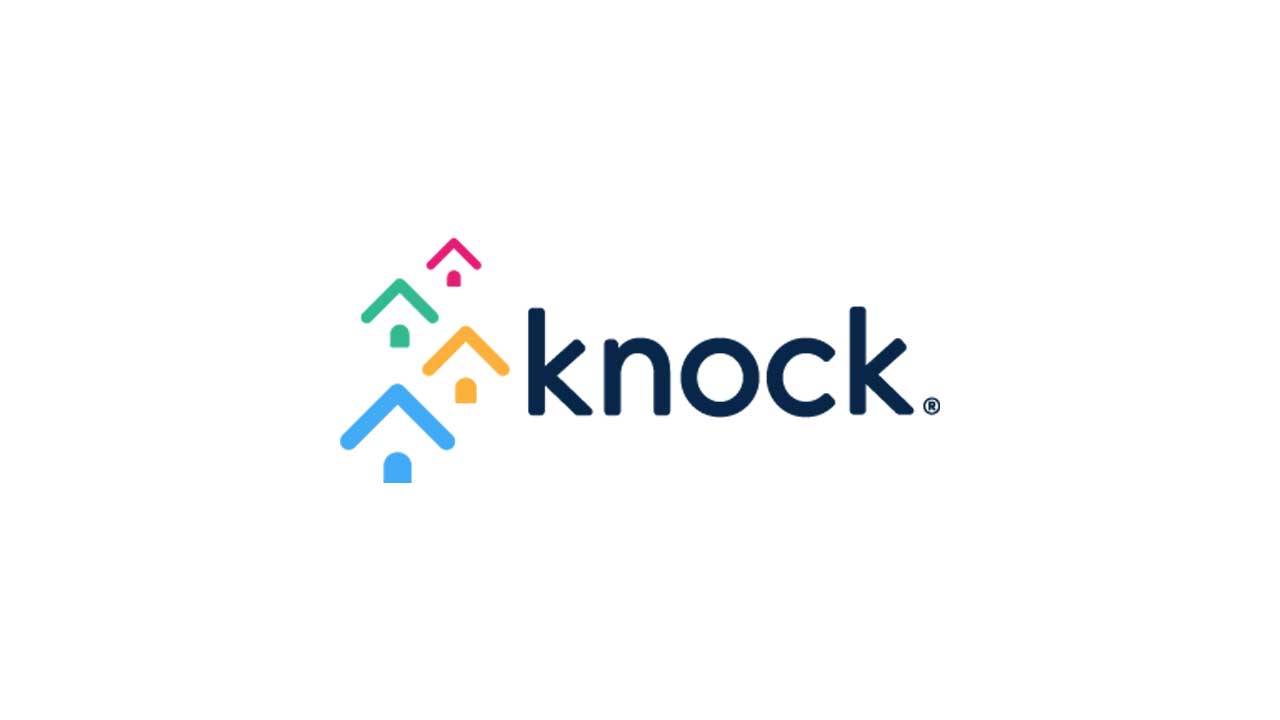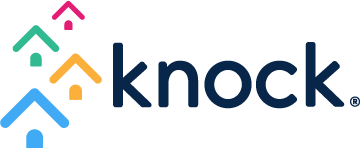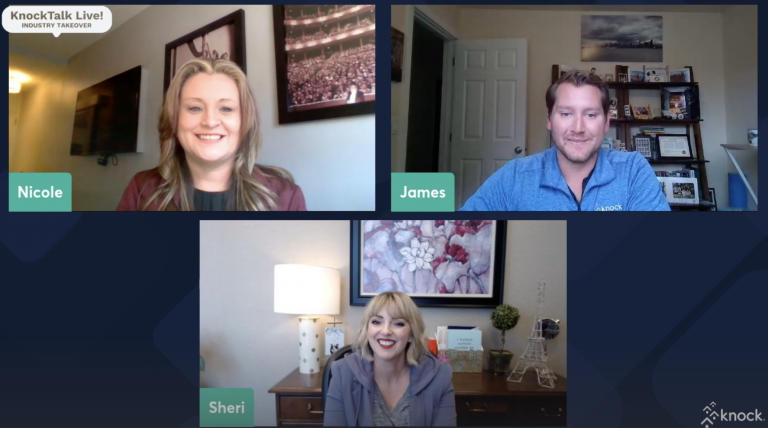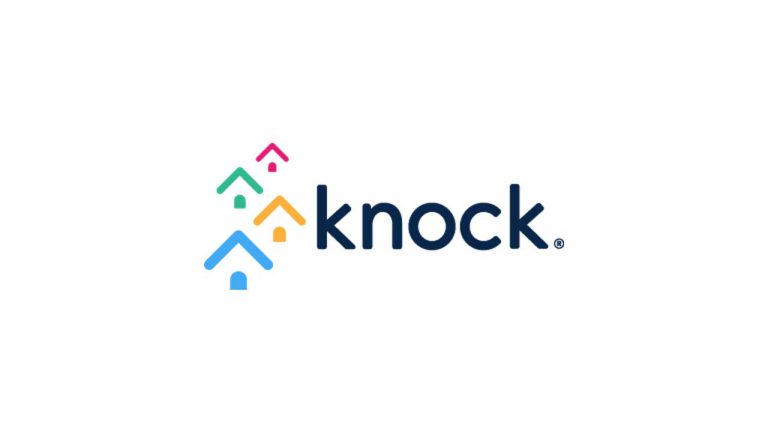Knock Talk: Ep. 10 Creating value for multifamily operators and properties

See how multifamily operators can take a new view on creating value and increasing NOI in this week’s episode of Knock Talk.
Watch or read the full transcript below.
Transcript
STEVE: Hello everybody! I am Steve Wunch, regional vice president of sales for the mountain region for Knock. I am also a 27-year veteran in the property management arena, and I am excited to welcome you back to Knock Talk, where we are shedding light on all things multifamily front office tech.
In this episode, I am so excited to introduce you to Mitch Wettig. Mitch is Knock’s director of value engineering, and he is joining me today to talk about multifamily operators’ revenue strategies, and how value creation is the key to managing through the entire market cycle. Mitch has spent over four years in the property management industry, [and] has an incredible, unique perspective. Mitch, I am so happy to talk with you today, welcome — can you tell us what it means to be a value engineer? I’m not so sure that many people [in] our audience have heard those terms before.
MITCH: Yeah, well hey Steve, thanks for the intro! A value engineer, simply put, first and foremost I sit between our product team and our sales team. I make sure sales can articulate, and is well versed in our product and integrations. And, that I’m bringing that customer feedback and prospect feedback to our product team to make sure that we are working on the right things, and that we’re not only pushing Knock forward but we’re actually pushing multifamily as a whole, forward.
Now, the other side of the value engineering [role] that I am most passionate about, is the value engineering. So if you think about a CRM or a lead management tool, it is a very hands-on product. The last thing we want to do is get in a tit-for-tat feature war between us and a competitor, because each platform is going to have their own ways of doing things.
What we know from data and the real value calculation and quantification that I like to do is looking at the hundreds of properties we have on our platform, the hundreds of partners and the millions of units we have, to really prove that Knock is a lease driver, renewal instigator, and a marketing budget optimizer. All three of those things create value and when we can quantify that for our customers and show that Knock is a really good investment — that’s the conversation that I like to have.
STEVE: That’s really cool, I love that whole idea of how you bring value to that whole relationship, right?
So Mitch, we are sitting here looking at the second half of 2020, and you’re out there talking with multifamily operators daily about creating a strategy that drives their NOI — what [are] you seeing and hearing with people evaluating technology for the multifamily space? Specifically, as it does relate to that NOI and creating value?
MITCH: Yeah, so I think in general the goal is still the same. People are always going to look at NOI and creating asset value, but right now, I think the magnifying glass is on renewals. You’ve got 40-60%, depending on you churn rate, of next years revenue already in your building. [And the question is] how do we keep them there?
One of the biggest gaps that I am hearing [from] the market is the lack of tools, and systems to help create predictability for forecasting exposure, and also not giving them enough lead time to market a unit that might be losing that renewal. So having answers in the tool that helps with both is going to be extremely important.
And you’ve been on-site, so I’m curious to hear your experience of strategies or things that have worked in the past, that would still be working now during COVID.
STEVE: That’s a great question. I think, you know, most companies are looking to keep that delinquency below that 2% mark or lower. And what I’m seeing and hearing from my peeps in the multifamily space is that people who can pay their rent, are paying their rent. So in terms of how COVID has affected collections, I think we are in a good place.
I’ve even heard a couple multifamily partners talk that they are actually beating the NMHC average for collections in June. So with all that is going on, I think that’s a good sign. But even still, I think operators are looking for other ways to impact their NOI and I don’t think there is anything that does a better job of that than having a focus on renewals, keeping that back door closed — I’ve been really encouraging folks that how they show up now in terms of resident communication and resident response, renewal strategies — even responding to reviews, that’s going to influence whether or not somebody says yes to the dress again.
I think your conversation around finding that foundation for that renewal strategy — I love to hear that Knock’s got their magnifying glass on that right now. I think that’s really amazing.
Mitch, why don’t we shift gears here a little bit and put focus on how the resident and prospect experience has changed. There’s a lot more choice — and how even property management companies have been enabling flexibility for the front office. Do you think that the experience is going to be permanently changed, and will these choices stay around even in a post-COVID world, once we get there?
MITCH: Yeah, I think to answer it simply, yes the change is here to stay. We’ve always wanted to meet the prospective renter where they are and give them options. That’s sort of how our self-booked touring was born. But, if we back up to the start of this year, start of 2020, and asked some of our friends at Rently or SmartRent, or some of those self-guided tour platforms — I imagine for them it was harder to convince an owner to really remove their best sales agent from the picture, right? When they don’t have [someone with] that personal insight, knows the neighborhood, that knows the views of the different units, that can really answer those in-depth questions — and give that prospective renter the self-guided experience.
But now, I think COVID has really forced the hand of a lot of them to adopt these new technologies, and its really fast-tracked the adoption across [the industry] — I mean we see it all the time, so I think the change is here to stay and it’s always going to be important for prospective residents to have options.
The other side of that is for the actual on-site teams. A lot of states still have lockdown, they still can’t go to the office. So if you can’t maintain that continuity of lead followup from home, then what’s that going to do 3, 6, 9, 12 months from now when you’re not getting the volume of leases that you would normally expect? So having a platform that really can solve for both is going to be important.
STEVE: You mentioned Rently and SmartRent — there’s a lot of options out there for people — how do you help advise an operator to look at how to create value from the solutions that are out there? There’s so many tools and so little time, what’s your take on that?
MITCH: There’s a lot of softwares and systems out there — some are solving bigger, larger, more complex problems and some are solving one specific problem. And what is very important is to make sure that as you’re adding these — I’m not going to call them a Band-Aid solution, but something that solves and immediate problem — that if you’re not building that on a foundation that is as an integration and has the data flowing seamlessly back and forth and doesn’t affect the workflows of your on-site teams, then you’re not really creating long-term value.
One of the things I want to challenge those listening is that, if you’ve got that contract on your desk, really think about what you’re signing up for — does it integrate really well? How is it going to affect the workflow of our onsite teams? To make sure that the full platform and the breadth of the system that you make are all speaking to each other. Because that, ultimately is where the value comes and that’s the thing that’s going to keep the engine running in the long term.
STEVE: That’s great, great advice. Very insightful. I hope for our listeners, that you were able to glean some strategy and advice out of this conversation. Mitch, thanks for your time, great to have you here.
MITCH: Yup, thanks Steve, I appreciate it.
STEVE: You bet. And we will see you next time, on Knock Talk!


